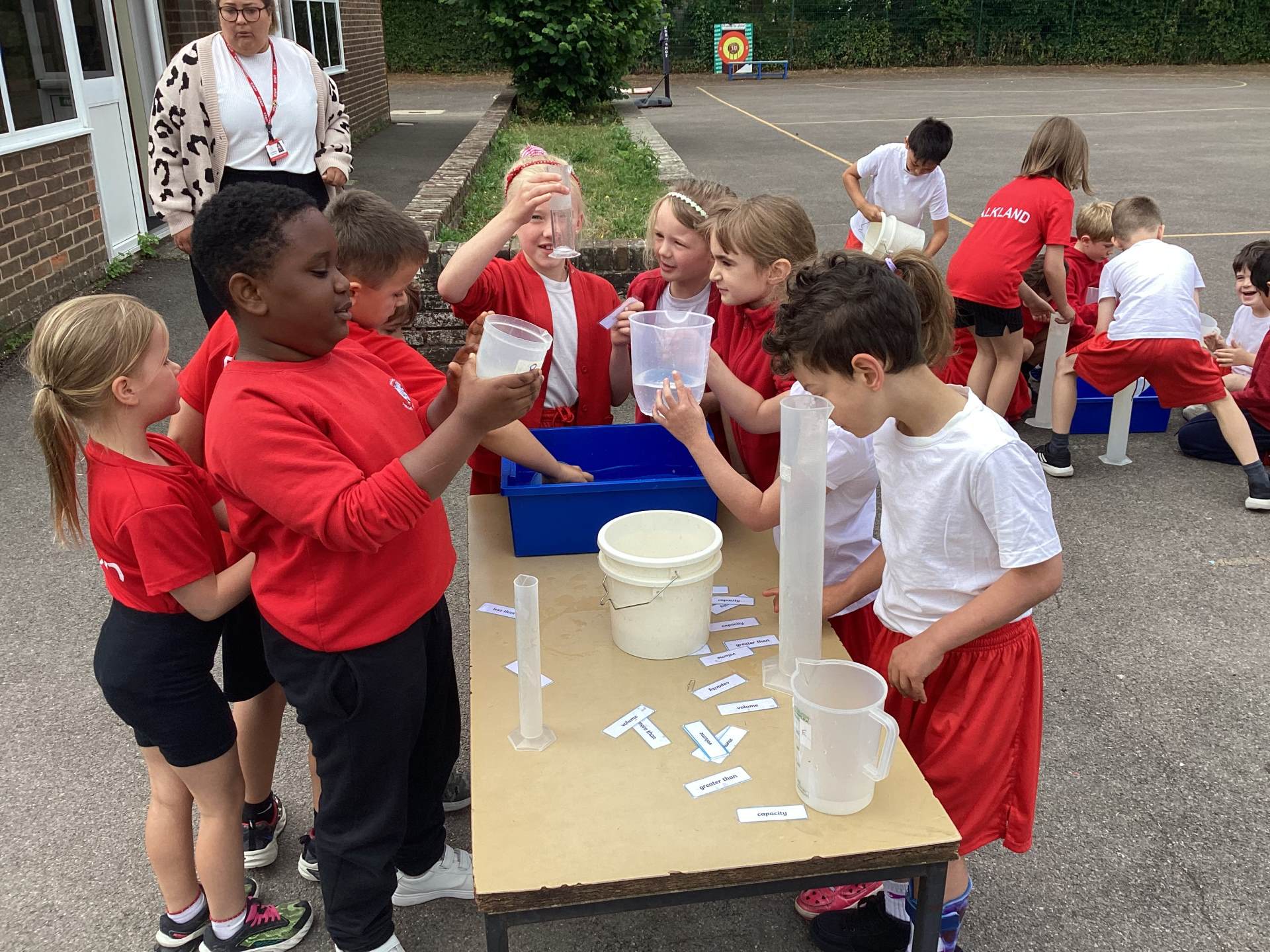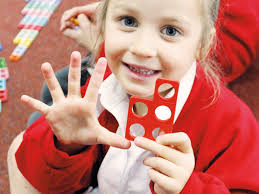We are Mathematicians
We are learning. We are growing. We are Falkland.



At Falkland, we LOVE maths! We are proud of our maths curriculum and our approach to teaching it. Our mantra in maths is: If we want children to be mathematicians, they must speak maths as a first language. Maths is practical and varied; no lesson is the same. One constant in every maths lesson is talk! Through planned opportunities for discussion, children explore and reason to develop their mathematical thinking.
Mathematics teaching at Falkland Primary is based on the principles of Teaching for Mastery, which originated from exchanges with teachers in Shanghai. In 2015, Mrs. Bamfield, our headteacher, was one of 136 teachers in England to be first trained as a Teaching for Mastery Specialist Teacher by the National Centre for Excellence in the Teaching of Mathematics (NCETM).
Mastering maths means that children of all ages acquire a deep, long-term, secure, and adaptable understanding of the subject. This is achieved using a range of pedagogical strategies, most notably through small steps of learning, careful variation of representations and questions, and building new learning on previously learned concepts.
Research shows that children taught using a mastery approach have a much deeper and more connected understanding of mathematics. They can not only carry out procedures but also understand and explain the mathematics underpinning them. This approach is supported by extensive research; some key articles can be found on the NCETM website
Our vision for mathematics at Falkland is that all children can become mathematicians. By focusing on teaching for mastery, all children can succeed in maths and acquire the necessary skills. A key element of this vision is the development of a shared language in maths. Teachers use correct mathematical vocabulary and encourage children to do the same, rather than simplifying terms to make them “easier.” Children of all ages are expected to reason about and explain their methods and answers, either verbally or in writing. This practice not only accelerates their language skills but also deepens their understanding of mathematical concepts.
Lessons are designed to ensure all children engage with rich problem-solving tasks and do not focus solely on procedural fluency. Each lesson follows small steps in learning teaching approach, where all children begin with a concept and receive teacher input and modelling throughout. Through a ‘I do, you do, we do’ approach, all children are engaged in their learning. In addition to learning new concepts, children need to become fluent and efficient in their arithmetic skills. Daily arithmetic practice is built into maths lessons, with content carefully mapped to reflect the learning from the previous year, so that it becomes automatic. This approach aims to enhance retrieval and minimise the need to re-teach content. Each week, there is dedicated time within maths lessons to teach an arithmetic skill, with a selection of questions designed to promote automatic recall throughout the week.
Teachers use assessment for learning to identify areas within the lesson where children need further guided practice or independent practice. Through this approach, no child is assigned a predetermined label based on prior attainment, ensuring that all children’s needs are met.
-
Calculation Policy
download_for_offline
download_for_offlineCalculation Policy
- EYFS Maths Overview docx download_for_offline
download_for_offlineEYFS Maths Overview docx
- Mathematics Policy download_for_offline
download_for_offlineMathematics Policy
- SMSC and British Values in Maths download_for_offline
download_for_offlineSMSC and British Values in Maths
- Whole School Maths Progression download_for_offline
download_for_offlineWhole School Maths Progression
- Year 0 EYFS Maths overview download_for_offline
download_for_offlineYear 0 EYFS Maths overview
- Year 1 Maths overview download_for_offline
download_for_offlineYear 1 Maths overview
- Year 2 Maths Overview download_for_offline
download_for_offlineYear 2 Maths Overview
- Year 3 Maths Overviews download_for_offline
download_for_offlineYear 3 Maths Overviews
- Year 5 Maths Overview download_for_offline
download_for_offlineYear 5 Maths Overview
- Year 6 Maths Overview download_for_offline
download_for_offlineYear 6 Maths Overview
We recently held a maths evening that looked at progression across the four operations. Please read through the presentations for examples and explanations of the steps in learning.
-
Addition slides
download_for_offline
↑
download_for_offlineAddition slides
- Divison slides download_for_offline
download_for_offlineDivison slides
- Multiplication slides download_for_offline
download_for_offlineMultiplication slides
- Subtraction Slides download_for_offline
download_for_offlineSubtraction Slides
- Divison slides download_for_offline
- EYFS Maths Overview docx download_for_offline




